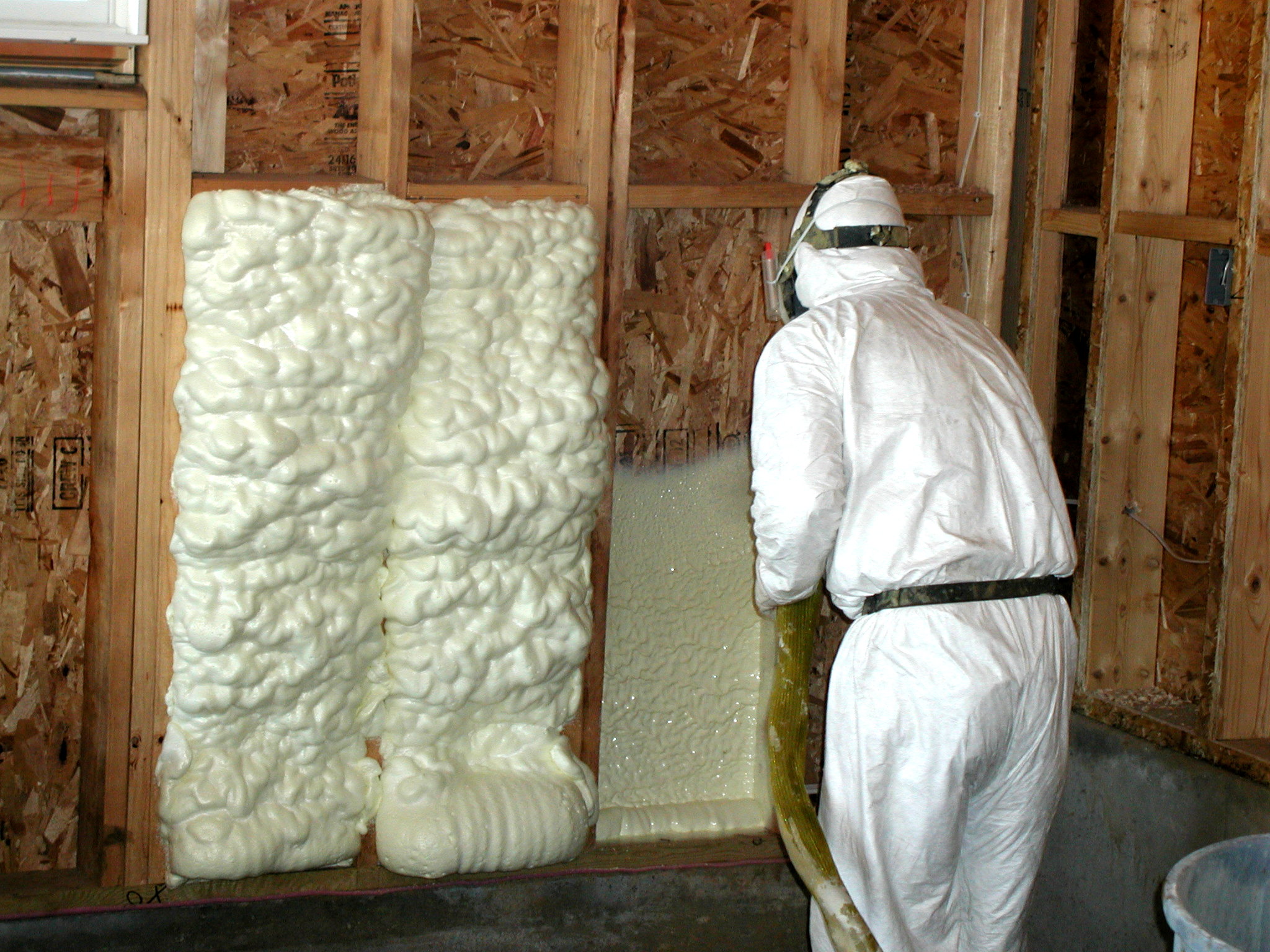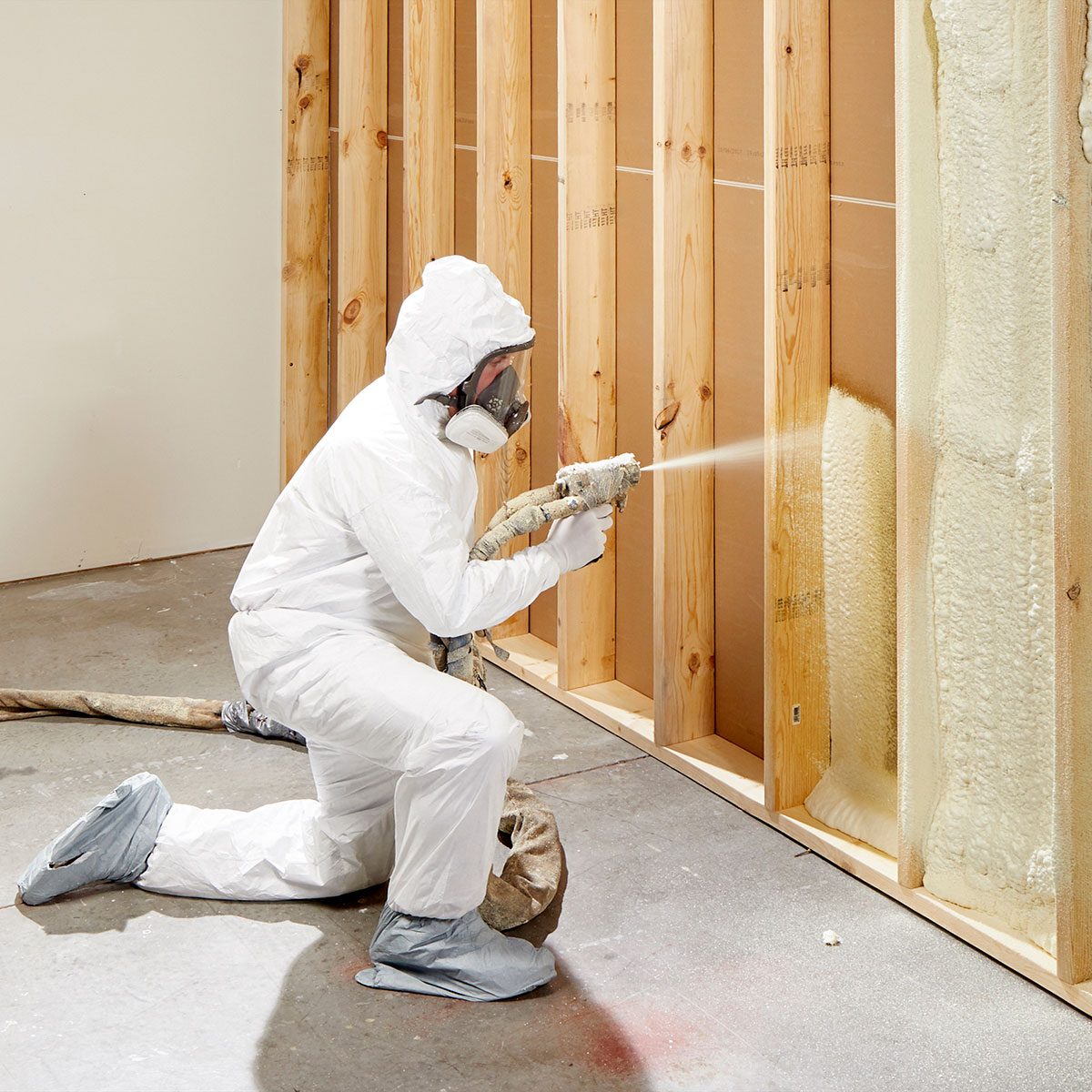Frequently Asked Questions Regarding Spray Foam Installation and Use
Frequently Asked Questions Regarding Spray Foam Installation and Use
Blog Article
Spray Foam: The Ultimate Service for Air Sealing and Insulation
Spray foam insulation has actually emerged as a leading solution for reliable air sealing and thermal insulation, offering an one-of-a-kind mix of homes that establish it besides typical approaches. Its ability to increase and fill voids makes it specifically effective in preventing air leakage, which can considerably impact energy performance. Nevertheless, understanding the complete extent of its advantages, setup processes, and contrasts with other insulation types is crucial for making notified decisions. As we discover these aspects, the ramifications for both new constructions and retrofits end up being increasingly considerable. What aspects should affect your selection?
What Is Spray Foam?
Spray foam is a flexible insulation product that integrates the principles of air securing and thermal resistance to improve energy performance in structures. Composed mostly of polyurethane or various other similar compounds, spray foam is used as a liquid that expands upon call with surface areas, developing a strong, constant layer of insulation. This distinct building permits it to fill up spaces, cracks, and voids that conventional insulation materials might forget, supplying a premium air seal.
There are 2 primary kinds of spray foam: open-cell and closed-cell. Open-cell spray foam is lighter and a lot more flexible, supplying outstanding audio absorption and a lower R-value per inch - Spray Foam. In comparison, closed-cell spray foam is denser, offering a greater R-value, moisture resistance, and included structural stability to constructing elements
The application procedure usually entails specialized devices, ensuring a seamless application that abides by various substrates, consisting of wood, metal, and concrete. This versatility makes spray foam suitable for both new building and constructions and retrofitting existing structures. Its capability to produce an airtight barrier substantially contributes to decreasing power intake and boosting indoor air high quality, thus making it a favored selection amongst home owners and builders alike.
Benefits of Spray Foam Insulation
One of the most considerable benefits of spray foam insulation is its exceptional ability to create a continuous air barrier, which efficiently reduces energy loss. Unlike typical insulation materials, spray foam expands to fill up splits and voids, ensuring that air leakage is dramatically lowered. This particular not just improves energy effectiveness but also leads to lower energy costs gradually.
Furthermore, spray foam insulation offers exceptional thermal resistance, adding to a more secure interior atmosphere. Its high R-value per inch enables effective insulation in constrained areas, making it optimal for attics, walls, and crawl rooms. The moisture-resistant homes of spray foam help protect against mold and mildew and mildew development, promoting much healthier living problems.
Another critical advantage of spray foam insulation is its sound-dampening qualities (Spray Foam). It properly decreases sound transmission between areas, producing a quieter and more comfy home environment. The longevity of spray foam likewise stands out, as it does not droop or settle gradually, maintaining its efficiency throughout its lifespan
Exactly How Spray Foam Functions
Understanding just how spray foam insulation works is necessary for appreciating its efficiency in air securing and thermal resistance. Spray foam insulation contains 2 key components: isocyanate and polyol material. When these parts are mixed, they go through a chemical response that causes the material to broaden quickly, creating a dense foam that loads dental caries, cracks, and spaces.
As the foam broadens, it complies with surface areas, forming an airtight seal that substantially lowers air seepage. This particular makes spray foam insulation highly reliable at preventing drafts and dampness penetration, which can bring about power loss and damage in time. Furthermore, the closed-cell variation of spray foam supplies premium thermal resistance due to its rigid structure, effectively reducing warm transfer.
The distinct buildings of spray foam permit it to adapt irregular surface areas, making certain comprehensive insurance coverage and a smooth obstacle. Consequently, spray foam insulation not just improves energy efficiency but additionally adds to boosted interior air high quality by decreasing the accumulation of toxins and allergens. Ultimately, understanding the technicians behind spray foam emphasizes its function as an exceptional option for insulation and air sealing in both domestic and commercial applications.
Installment Refine Overview

Before installment, the space should be appropriately click reference cleaned and prepped, making sure that surface areas are without particles, moisture, and dust. This action is essential since impurities can endanger attachment and overall performance. As soon as the location is prepared, the application entails blending both parts of the spray foam, which increases upon call and loads voids effectively.
Trained professionals should conduct the installment, making use of specific devices to make certain uniform protection and ideal thickness. Security safety measures, including putting on protective gear and making certain appropriate air flow, are important throughout this procedure. After application, the foam normally remedies rapidly, forming a solid obstacle that improves energy efficiency.
Comparing Spray Foam to Traditional Insulation
When evaluating insulation alternatives, spray foam insulation attracts attention in comparison to conventional products such as fiberglass and cellulose. Among the main advantages of spray foam is its superior air securing abilities. Unlike fiberglass and cellulose, which can allow air seepage, spray foam broadens upon application, filling crevices and voids to produce look at this web-site an airtight seal. This causes improved energy effectiveness, as less warmed or cooled air escapes the home, causing lower energy bills.
In addition, spray foam supplies a greater R-value per inch than conventional insulation kinds, providing even more effective thermal resistance in a thinner account. This particular is especially valuable in areas with minimal tooth cavity deepness. Spray foam is immune to moisture and mold growth, which can be a substantial concern with cellulose and fiberglass, especially in moist environments.
Nevertheless, spray foam insulation commonly brings a higher ahead of time price than its typical counterparts. House owners have to weigh this initial investment versus lasting power financial savings and efficiency benefits. Eventually, while both insulation kinds offer their objective, spray foam becomes an advanced service for contemporary insulation requirements, specifically in regards to air securing and thermal performance.

Conclusion
In summary, spray foam insulation represents a highly effective solution for attaining optimum air securing and thermal resistance. Its special buildings, consisting of wetness Related Site resistance and sound dampening, make it suitable for various applications in both brand-new building and constructions and retrofitting jobs (Spray Foam). The preliminary costs might be higher contrasted to standard insulation materials, the lasting advantages, such as significant power cost savings and boosted interior air quality, warrant the financial investment and highlight its value in modern structure practices.
Spray foam insulation has actually emerged as a leading remedy for efficient air securing and thermal insulation, providing an unique combination of residential or commercial properties that establish it apart from standard methods.Spray foam is a flexible insulation material that integrates the concepts of air sealing and thermal resistance to boost energy effectiveness in buildings.When examining insulation options, spray foam insulation stands out in contrast to traditional materials such as fiberglass and cellulose. Inevitably, while both insulation types serve their objective, spray foam emerges as a much more innovative service for modern-day insulation needs, especially in terms of air securing and thermal efficiency.
In summary, spray foam insulation stands for a very effective service for attaining optimal air securing and thermal resistance.
Report this page